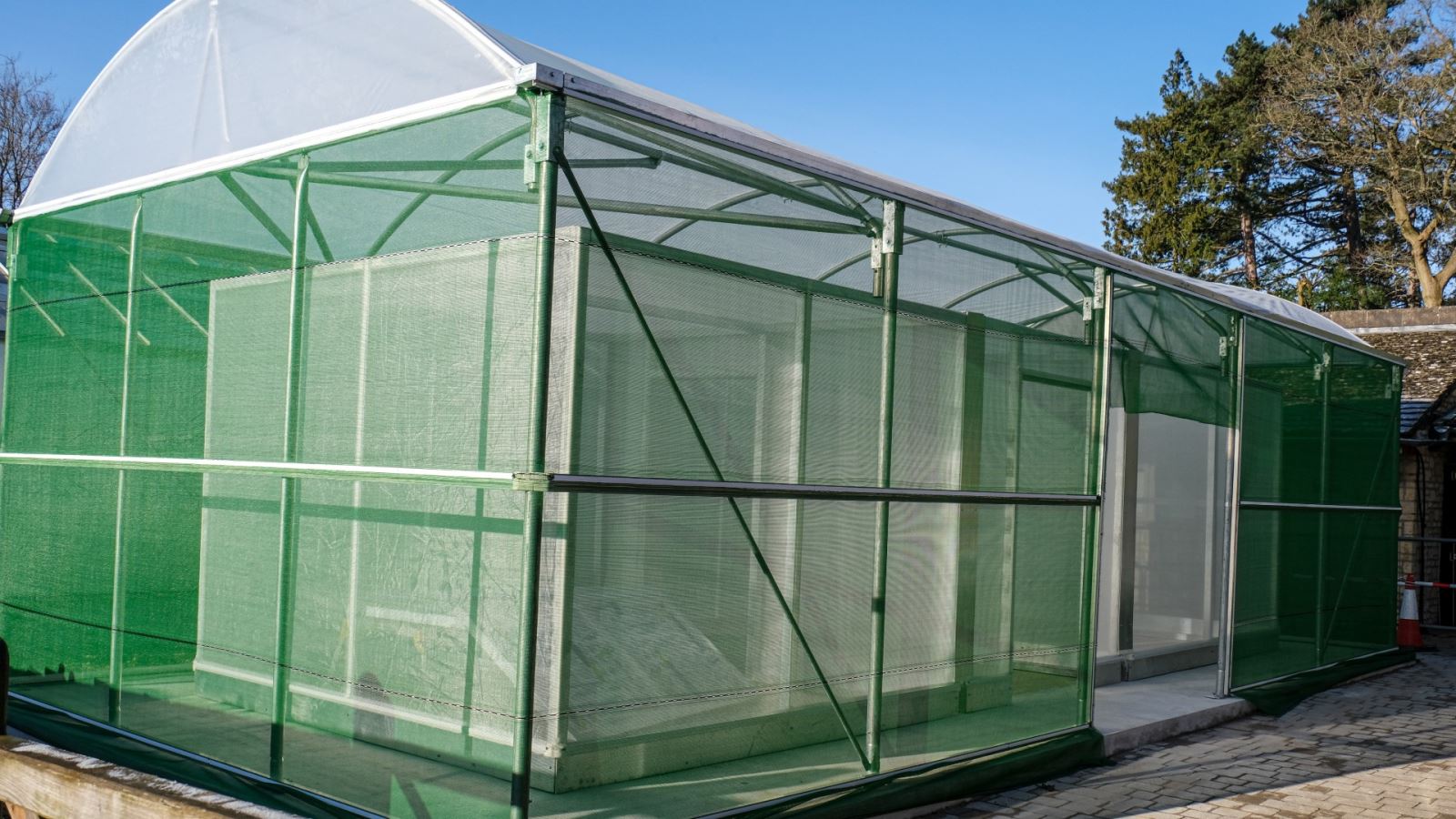The risk to trees from pests and diseases has never been greater.

Westonbirt, the National Arboretum has gone the extra mile to protect their beloved trees as shorter winters, warmer climates and the ability of pests and diseases to travel great distances in organic material means that trees are under continuously under-threat. To combat pests and disease, Westonbirt has built its own Quarantine House to help protect the trees.
New plants are the lifeblood of arboreta and botanical gardens alike and ensure that future generations will be able to enjoy a spectacular array of specimen plants as we do today. However, much care is needed to make certain that all new plant material brought into the arboretum doesn’t present a potential risk to the collection, as pests and diseases can travel in seeds and other organic material. There are a range of existing control measures already in place to mitigate the risk of accepting the new plants that have been carefully selected to enhance the living tree collection. To update their biosecurity facilities even further and in line with industry excellence, a specialist facility has been built within the propagation unit.
Penny Jones, Propagator at Westonbirt explains, ‘This Quarantine House means that all new plants and seeds can be separated from other plants in the Propagation Unit and from those in the living collection. We are now able to constantly monitor and inspect new plants and apply the correct biological controls if needed’.
It will also enable staff to introduce improved propagation protocols, concerning the management in incoming seeds and plants, to increase efficiency and further reduce risks. They will also be better equipped to comply with industry best practice and guidance, and the strict rules on movement of plant material.
This project was partly funded by the Friends of Westonbirt Arboretum, a charity which supports the arboretum with the help of nearly 39,000 members. Further support from donors and external funders raised an amazing £30,000 towards this project. With special recognition to The Finnis Scott Foundation, The Banister Charitable Trust, and Stanley Smith (UK) Horticultural Trust for helping to protect the trees at Westonbirt with their generous contributions.
The new unit, built by Polybuild Ltd and R&W Civil Engineering Ltd, will have two separate compartments to allow the staff to keep plants from different intake batches separate, reducing the risk of contamination if any do carry pests or diseases, and an outer poly-tunnel, which will provide essential protection against the elements.
Clive Williams, Managing Director at Polybuild Ltd says, ‘We have enjoyed supplying and continue to supply many prestigious clients within the horticultural world, including The Royal Botanical Gardens at Wakehurst Place home of the Millennium Seed Bank, RHS Rosemoor and at RHS Wisley with the installation of a bespoke Isolation Unit and on a larger scale Provender Nurseries in Kent. We’re proud to have worked with Forestry England, Westonbirt, on installing their own Quarantine Unit’.
With currently 32 main pests and diseases threatening the UK’s trees, not to mention countless other threats, the Quarantine House presents an opportunity to promote the importance of biosecurity to visitors. Westonbirt Arboretum has a crucial role to play in working to protect native and exotic tree species, both by providing a resource for seed of species threatened with extinction in their native habitats, and in researching how best to protect different species against the multitude of threats they now face.
Related
Comments
Nobody has commented on this post yet, why not send us your thoughts and be the first?













